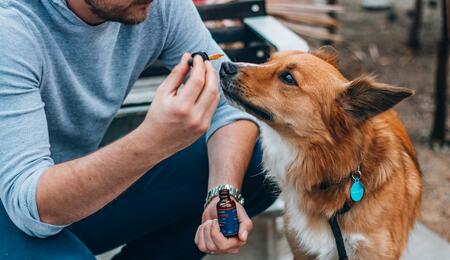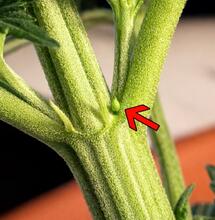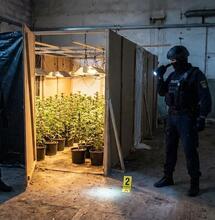University of Chile: CBD Can Help Shrink Tumors in Dogs

A CBD nanoemulsion prepared by the University of Chile reportedly managed to shrink malignant tumor cells in an in vitro model. The next step is to test the new innovative CBD encapsulation in animal models, specifically targeting the mammary glands of female dogs.
Veterinary researcher Francisca Medina managed to dispense CBD in nanoemulsion form into an in vitro model, resulting in slowed growth and reproduction of cancer cells. The research, carried out as part of a PhD program at the University of Chile’s Department of Agricultural and Veterinary Sciences, demonstrated that CBD can counteract breast cancer in in vitro models with CBD nanoemulsions by inhibiting the proliferation and migration of tumor cells in female dogs.
What is a CBD Nanoemulsion?
A major obstacle to CBD in therapeutic applications is its low water solubility, which hinders absorption and limits dosage. To overcome this problem, the researchers developed a CBD nanoemulsion (CBD-Nem), an oil-in-water formulation where the cannabinoid is encapsulated in tiny lipid particles that increase its bioavailability in the endocannabinoid system.
Back to the PhD research, Medina’s in vitro model was exposed to the special CBD solution for 20 days with consistent efficacy, making a major achievement for biological sciences, according to a publication in the scientific journal Pharmaceutics. The next step is to engage animal models and continue testing the potential efficacy of the CBD nanoemulsion.
“We want to move forward with studies in mice and then in dogs, evaluating not only the antitumor effects, but also its safety at the systemic level,” Medina said. “CBD has shown effects on various tumors, and the nanoemulsion enhances its action. We do not rule out that this research may have applications in melanoma or other epithelial tissue cancers, both in dogs and humans,” she said, Soft Secrets Latin America reported.
Breast cancer in dogs has several similarities to that seen in humans. The study could open the door for tests in humans as well, should the CBD encapsulation continue to deliver positive results in the next assessments.
“Laboratory tests showed that the nanoemulsion not only reduced the viability of neoplastic cells, but also inhibited their ability to migrate and invade other tissues, a key factor in the metastasis process. In addition, it decreased tumor growth in 20 days, showing a prolonged effect,” the university’s website said.
More from Soft Secrets:













